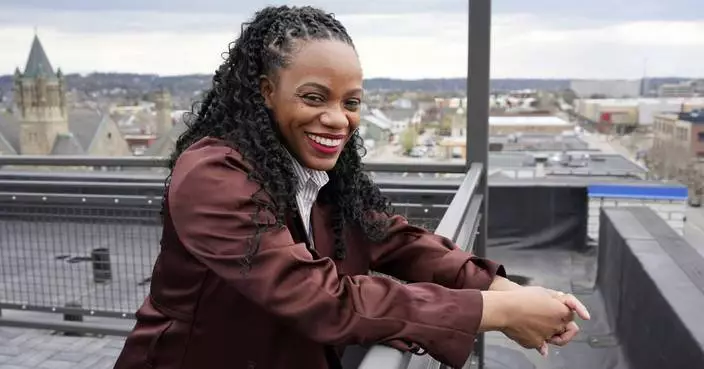Emily Ratajkowski, the 26-year-old model flouted strict dress codes by posing photo without tops at Moroccan hotel during a getaway.

Photo via Instagram
Her act ignites controversy on the internet since the code of conduct set out by La Mamounia Marrakech, which specifies that "an elegant dress code is required in all public areas."
Click to Gallery
Emily Ratajkowski, the 26-year-old model flouted strict dress codes by posing photo without tops at Moroccan hotel during a getaway.
Her act ignites controversy on the internet since the code of conduct set out by La Mamounia Marrakech, which specifies that "an elegant dress code is required in all public areas."
The hotel is a famous resort for many celebrity clientele including Hollywood stars, artists, fashion designers and literary figures. Besides, Morocco is also an Islamic country, where clothes are particularly important.
"To me, any expression that is empowered and is your own as a woman is feminist," she continued. "If a woman decides to dress sexy, it doesn’t mean she's not a feminist. [We] should be doing things for ourselves. If that is the woman’s choice, and it makes her feel good, then that’s great. Good for her."
Merci Marrakech, you are amazing,' she wrote beside a picture in which she is standing in the doorway of the luxury palace hotel with white thong bikini bottoms and a kimono-like clothing covered.
She was completely topless and posed provocatively with her almost nude body.
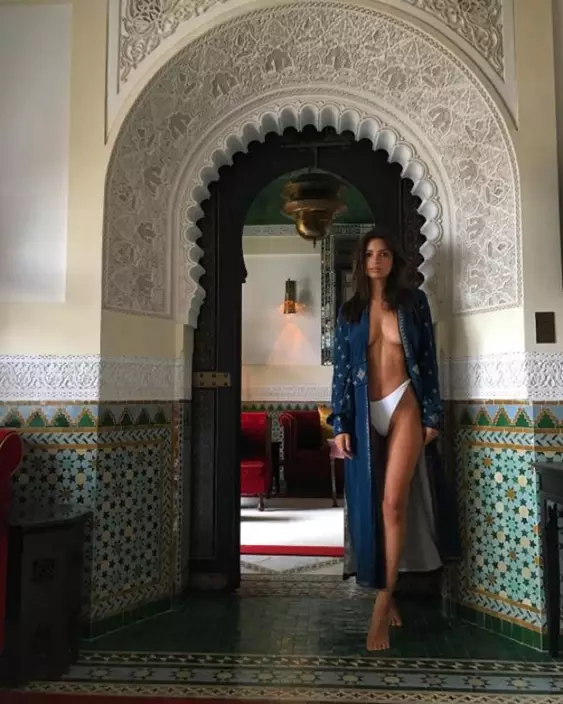
Photo via Instagram
The hotel is a famous resort for many celebrity clientele including Hollywood stars, artists, fashion designers and literary figures. Besides, Morocco is also an Islamic country, where clothes are particularly important.
After the snaps, Emily posted a political message on her Instagram in response to news that President Trump intends to roll back free birth control.
Meanwhile, Emily spoke to the media she feels breasts have become oversexualized.
"It really bothers me that people are so offended by breasts," she said. "That's when I realised how f**ked our culture is. Then we see breasts, we don't think of beauty and feminity. We think of vulgar, oversexualized images."
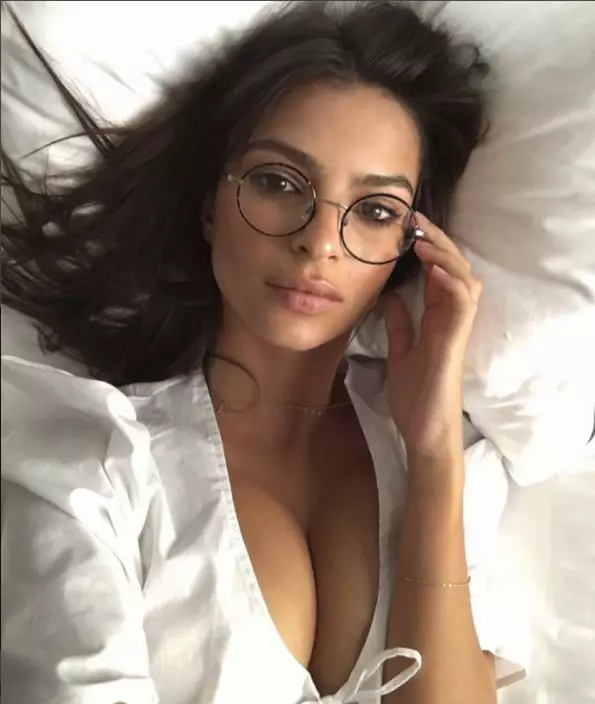
Photo via Instagram

Photo via Instagram
"To me, any expression that is empowered and is your own as a woman is feminist," she continued. "If a woman decides to dress sexy, it doesn’t mean she's not a feminist. [We] should be doing things for ourselves. If that is the woman’s choice, and it makes her feel good, then that’s great. Good for her."
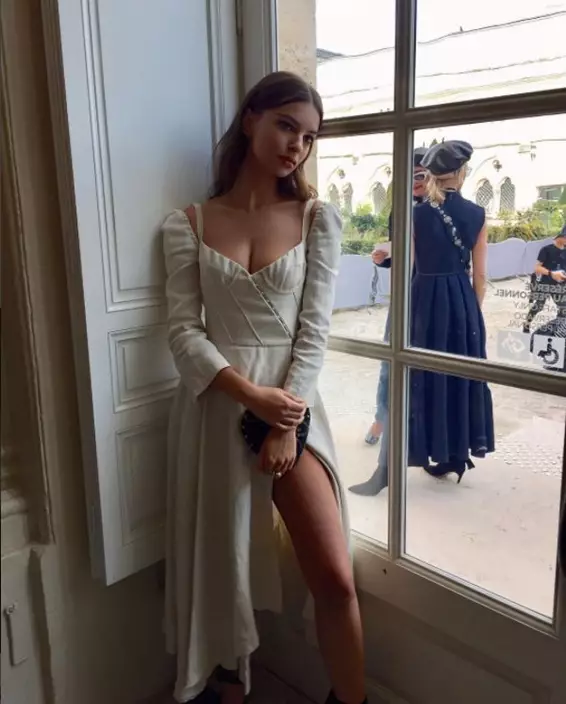
Photo via Instagram
CHICAGO (AP) — London-based model Alexsandrah has a twin, but not in the way you’d expect: Her counterpart is made of pixels instead of flesh and blood.
The virtual twin was generated by artificial intelligence and has already appeared as a stand-in for the real-life Alexsandrah in a photo shoot. Alexsandrah, who goes by her first name professionally, in turn receives credit and compensation whenever the AI version of herself gets used — just like a human model.
Alexsandrah says she and her alter-ego mirror each other “even down to the baby hairs.” And it is yet another example of how AI is transforming creative industries — and the way humans may or may not be compensated.
Proponents say the growing use of AI in fashion modeling showcases diversity in all shapes and sizes, allowing consumers to make more tailored purchase decisions that in turn reduces fashion waste from product returns. And digital modeling saves money for companies and creates opportunities for people who want to work with the technology.
But critics raise concerns that digital models may push human models — and other professionals like makeup artists and photographers — out of a job. Unsuspecting consumers could also be fooled into thinking AI models are real, and companies could claim credit for fulfilling diversity commitments without employing actual humans.
“Fashion is exclusive, with limited opportunities for people of color to break in,” said Sara Ziff, a former fashion model and founder of the Model Alliance, a nonprofit aiming to advance workers’ rights in the fashion industry. “I think the use of AI to distort racial representation and marginalize actual models of color reveals this troubling gap between the industry’s declared intentions and their real actions.”
Women of color in particular have long faced higher barriers to entry in modeling and AI could upend some of the gains they've made. Data suggests that women are more likely to work in occupations in which the technology could be applied, and are more at risk of displacement than men.
In March 2023, iconic denim brand Levi Strauss & Co. announced that it would be testing AI-generated models produced by Amsterdam-based company Lalaland.ai to add a wider range of body types and underrepresented demographics on its website. But after receiving widespread backlash, Levi clarified that it was not pulling back on its plans for live photo shoots, the use of live models or its commitment to working with diverse models.
“We do not see this (AI) pilot as a means to advance diversity or as a substitute for the real action that must be taken to deliver on our diversity, equity and inclusion goals and it should not have been portrayed as such,” Levi said in its statement at the time.
The company last month said that it has no plans to scale the AI program.
The Associated Press reached out to several other retailers to ask whether they use AI fashion models. Target, Kohl’s and fast-fashion giant Shein declined to comment; Temu did not respond to a request for comment.
Meanwhile, spokespeople for Nieman Marcus, H&M, Walmart and Macy's said their respective companies do not use AI models, although Walmart clarified that “suppliers may have a different approach to photography they provide for their products but we don’t have that information.”
Nonetheless, companies that generate AI models are finding a demand for the technology, including Lalaland.ai, which was co-founded by Michael Musandu after he was feeling frustrated by the absence of clothing models who looked like him.
“One model does not represent everyone that’s actually shopping and buying a product,” he said. “As a person of color, I felt this painfully myself.”
Musandu says his product is meant to supplement traditional photo shoots, not replace them. Instead of seeing one model, shoppers could see nine to 12 models using different size filters, which would enrich their shopping experience and help reduce product returns and fashion waste.
The technology is actually creating new jobs, since Lalaland.ai pays humans to train its algorithms, Musandu said.
And if brands “are serious about inclusion efforts, they will continue to hire these models of color,” he added.
London-based model Alexsandrah, who is Black, says her digital counterpart has helped her distinguish herself in the fashion industry. In fact, the real-life Alexsandrah has even stood in for a Black computer-generated model named Shudu, created by Cameron Wilson, a former fashion photographer turned CEO of The Diigitals, a U.K.-based digital modeling agency.
Wilson, who is white and uses they/them pronouns, designed Shudu in 2017, described on Instagram as the “The World’s First Digital Supermodel.” But critics at the time accused Wilson of cultural appropriation and digital Blackface.
Wilson took the experience as a lesson and transformed The Diigitals to make sure Shudu — who has been booked by Louis Vuitton and BMW — didn’t take away opportunities but instead opened possibilities for women of color. Alexsandrah, for instance, has modeled in-person as Shudu for Vogue Australia, and writer Ama Badu came up with Shudu’s backstory and portrays her voice for interviews.
Alexsandrah said she is “extremely proud” of her work with The Diigitals, which created her own AI twin: “It’s something that even when we are no longer here, the future generations can look back at and be like, ‘These are the pioneers.’”
But for Yve Edmond, a New York City area-based model who works with major retailers to check the fit of clothing before it's sold to consumers, the rise of AI in fashion modeling feels more insidious.
Edmond worries modeling agencies and companies are taking advantage of models, who are generally independent contractors afforded few labor protections in the U.S., by using their photos to train AI systems without their consent or compensation.
She described one incident in which a client asked to photograph Edmond moving her arms, squatting and walking for “research" purposes. Edmond refused and later felt swindled — her modeling agency had told her she was being booked for a fitting, not to build an avatar.
“This is a complete violation,” she said. “It was really disappointing for me.”
But absent AI regulations, it’s up to companies to be transparent and ethical about deploying AI technology. And Ziff, the founder of the Model Alliance, likens the current lack of legal protections for fashion workers to “the Wild West.”
That's why the Model Alliance is pushing for legislation like the one being considered in New York state, in which a provision of the Fashion Workers Act would require management companies and brands to obtain models’ clear written consent to create or use a model’s digital replica; specify the amount and duration of compensation, and prohibit altering or manipulating models’ digital replica without consent.
Alexsandrah says that with ethical use and the right legal regulations, AI might open up doors for more models of color like herself. She has let her clients know that she has an AI replica, and she funnels any inquires for its use through Wilson, who she describes as "somebody that I know, love, trust and is my friend.” Wilson says they make sure any compensation for Alexsandrah's AI is comparable to what she would make in-person.
Edmond, however, is more of a purist: “We have this amazing Earth that we’re living on. And you have a person of every shade, every height, every size. Why not find that person and compensate that person?”
Associated Press Writers Anne D’Innocenzio and Haleluya Hadero contributed to this story from New York.
The Associated Press’ women in the workforce and state government coverage receives financial support from Pivotal Ventures. AP is solely responsible for all content. Find AP’s standards for working with philanthropies, a list of supporters and funded coverage areas at AP.org.
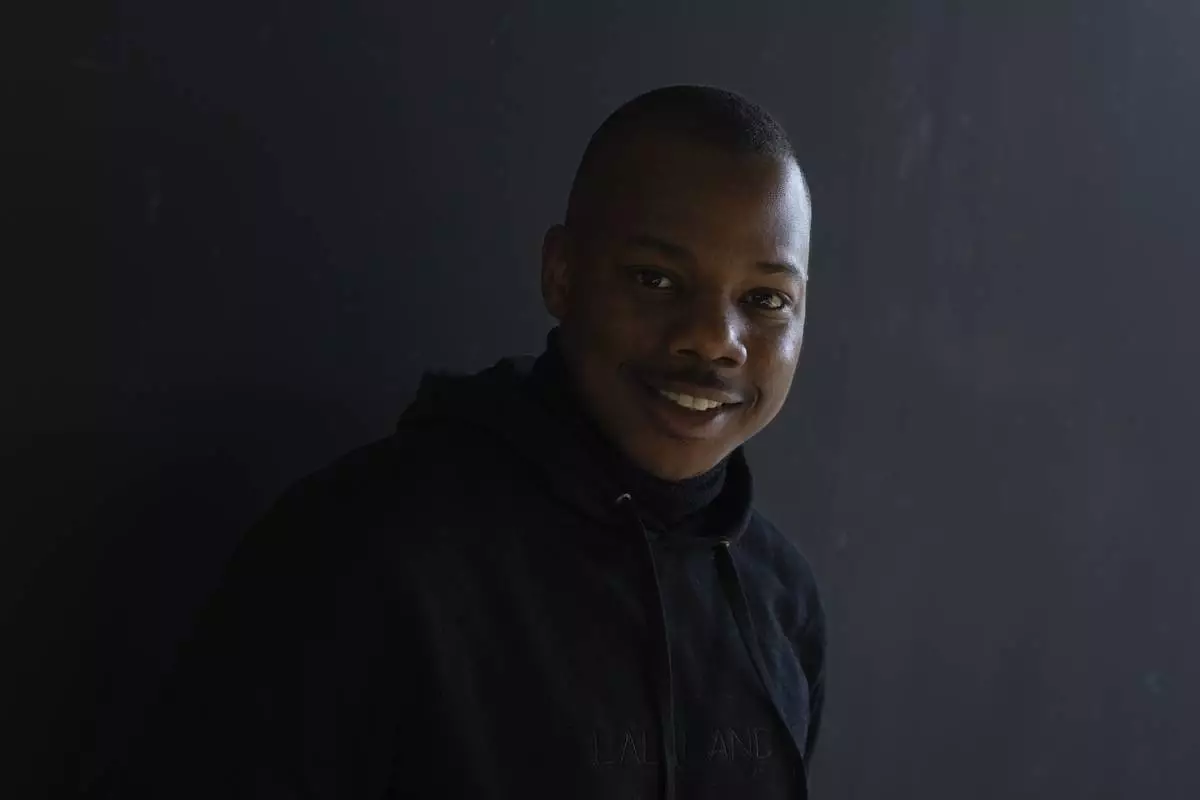
Michael Musandu, a co-founder and CEO of AI fashion company Lalaland.ai, poses for a portrait in Amsterdam, Netherlands, Friday, March 8, 2024. In March 2023, iconic denim brand Levi Strauss & Co. announced that it would be testing AI-generated models produced by the Amsterdam-based company to add a wider range of body types and underrepresented demographics on its website. (AP Photo/Peter Dejong)
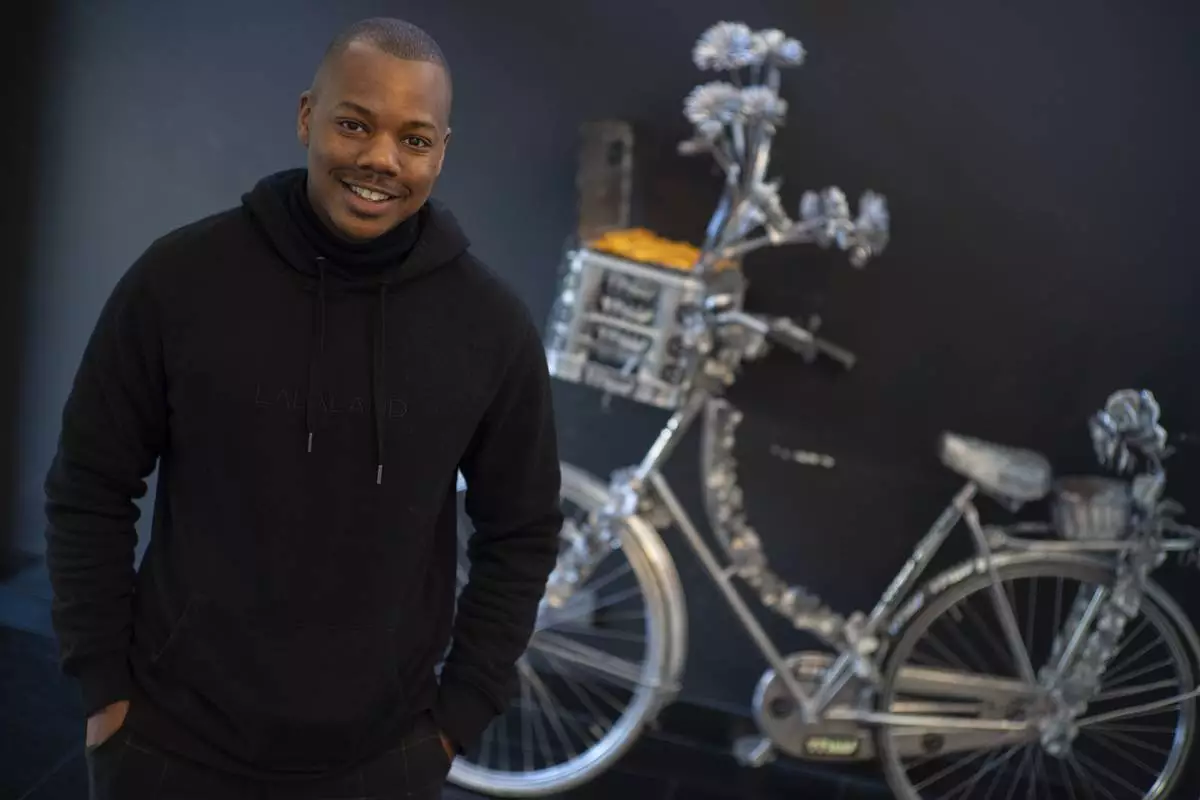
Michael Musandu, a co-founder and CEO of AI fashion company Lalaland.ai, poses for a portrait in Amsterdam, Netherlands, Friday, March 8, 2024. In March 2023, iconic denim brand Levi Strauss & Co. announced that it would be testing AI-generated models produced by the Amsterdam-based company to add a wider range of body types and underrepresented demographics on its website. (AP Photo/Peter Dejong)
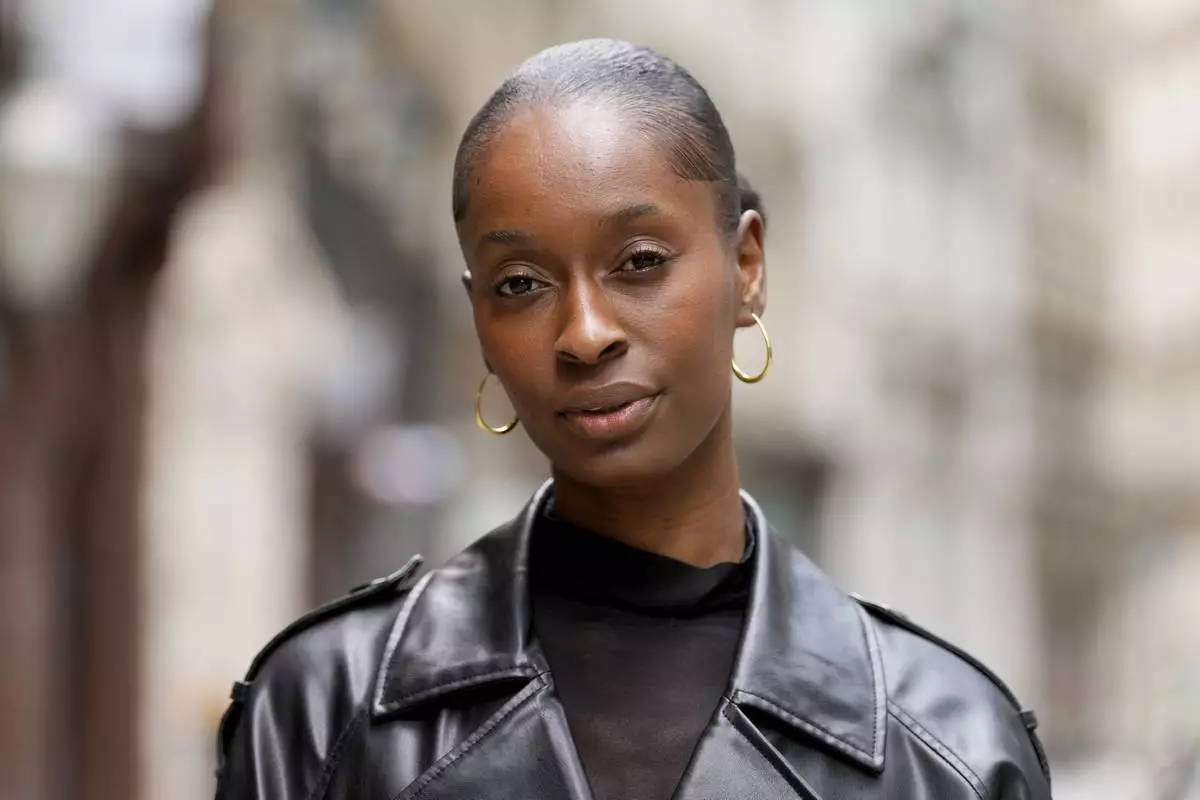
Fashion model Alexsandrah poses for a photograph, in London, Friday, March 29, 2024. The use of computer-generated supermodels has complicated implications for diversity. Although AI modeling agencies -- some of them Black-owned -- can render models of all races, genders and sizes at the click of a finger, real models of color who have historically faced higher barriers to entry may be put out of work. (AP Photo/Kirsty Wigglesworth)
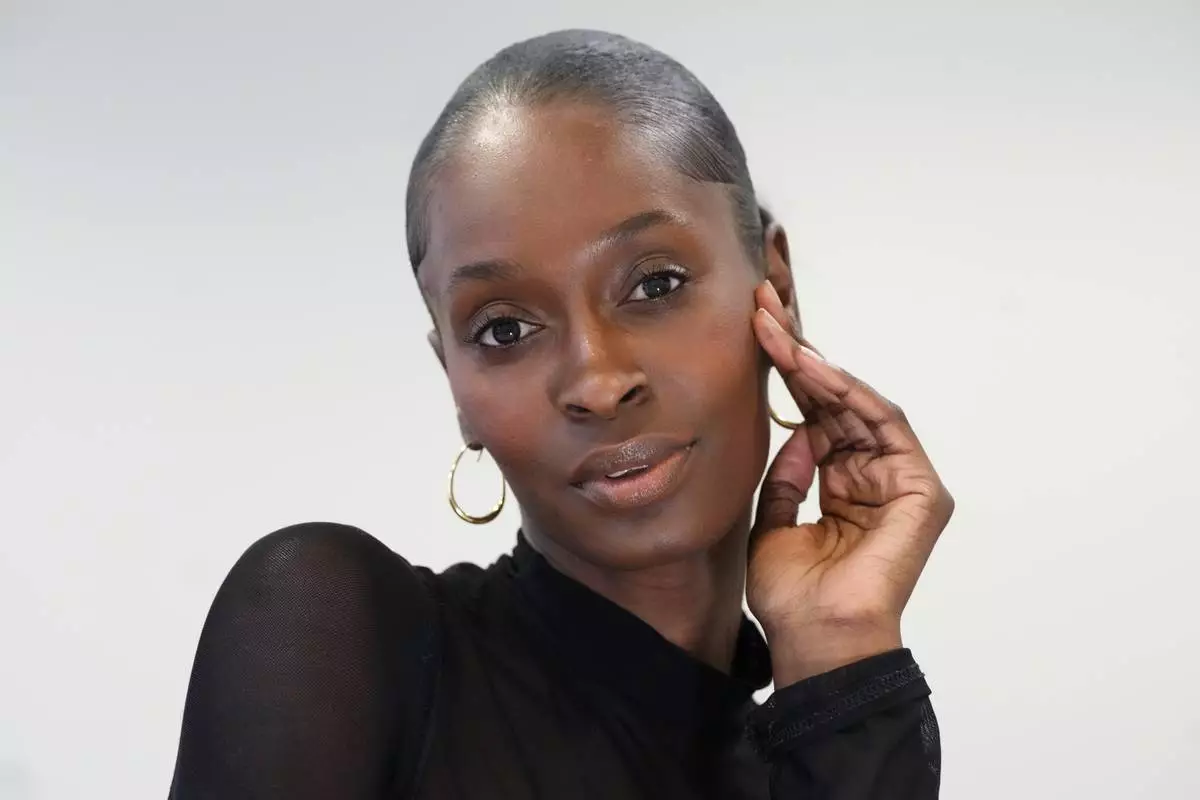
Fashion model Alexsandrah poses for a photograph, in London, Friday, March 29, 2024. The use of computer-generated supermodels has complicated implications for diversity. Although AI modeling agencies -- some of them Black-owned -- can render models of all races, genders and sizes at the click of a finger, real models of color who have historically faced higher barriers to entry may be put out of work. (AP Photo/Kirsty Wigglesworth)
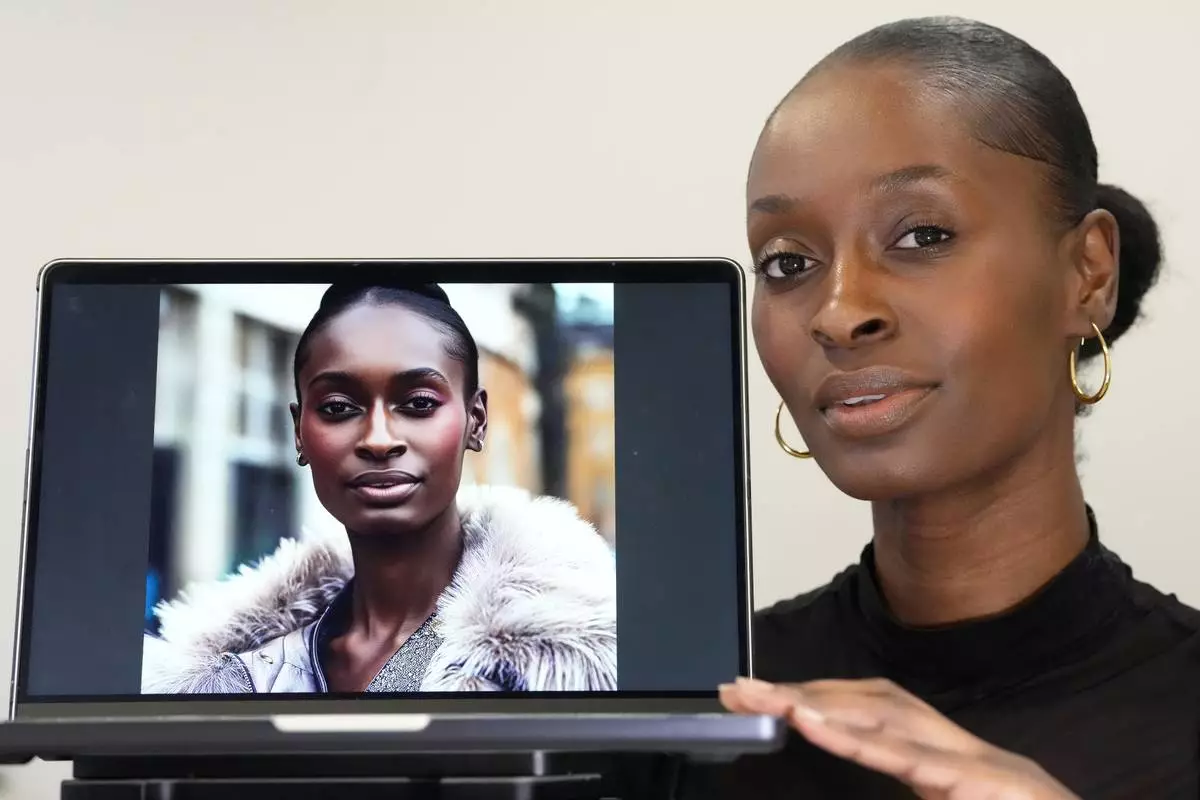
Fashion model Alexsandrah poses with a computer showing an AI generated image of her, in London, Friday, March 29, 2024. The use of computer-generated supermodels has complicated implications for diversity. Although AI modeling agencies -- some of them Black-owned -- can render models of all races, genders and sizes at the click of a finger, real models of color who have historically faced higher barriers to entry may be put out of work. (AP Photo/Kirsty Wigglesworth)













